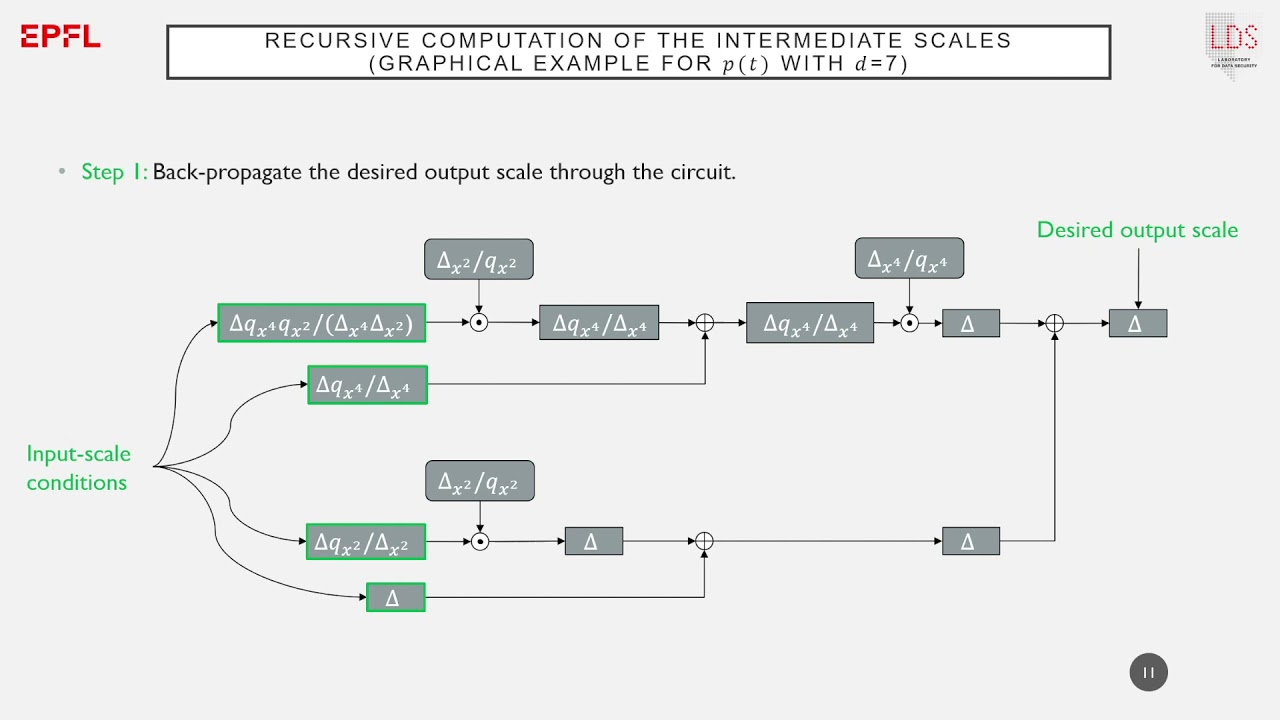Welcome to the resource topic for 2020/1203
Title:
Efficient Bootstrapping for Approximate Homomorphic Encryption with Non-Sparse Keys
Authors: Jean-Philippe Bossuat, Christian Mouchet, Juan Troncoso-Pastoriza, Jean-Pierre Hubaux
Abstract:We present a bootstrapping procedure for the full-RNS variant of the approximate homomorphic-encryption scheme of Cheon et al., CKKS (Asiacrypt 17, SAC 18). Compared to the previously proposed procedures (Eurocrypt 18 & 19, CT-RSA 20), our bootstrapping procedure is more precise, more efficient (in terms of CPU cost and number of consumed levels), and is more reliable and 128-bit-secure. Unlike the previous approaches, it does not require the use of sparse secret-keys. Therefore, to the best of our knowledge, this is the first procedure that enables a highly efficient and precise bootstrapping with a low probability of failure for parameters that are 128-bit-secure under the most recent attacks on sparse R-LWE secrets. We achieve this efficiency and precision by introducing three novel contributions: (i) We propose a generic algorithm for homomorphic polynomial-evaluation that takes into account the approximate rescaling and is optimal in level consumption. (ii) We optimize the key-switch procedure and propose a new technique for linear transformations (\emph{double hoisting}). (iii) We propose a systematic approach to parameterize the bootstrapping, including a precise way to assess its failure probability. We implemented our improvements and bootstrapping procedure in the open-source Lattigo library. For example, bootstrapping a plaintext in \mathbb{C}^{32768} takes 18 seconds, has an output coefficient modulus of 505 bits, a mean precision of 19.1 bits, and a failure probability of 2^{-15.58}. Hence, we achieve 14.1$\times$ improvement in bootstrapped throughput (plaintext-bit per second), with respect to the previous best results, and we have a failure probability 468$\times$ smaller and ensure 128-bit security.
ePrint: https://eprint.iacr.org/2020/1203
Talk: https://www.youtube.com/watch?v=6GCA3Nv1ZYs
See all topics related to this paper.
Feel free to post resources that are related to this paper below.
Example resources include: implementations, explanation materials, talks, slides, links to previous discussions on other websites.
For more information, see the rules for Resource Topics .
